Let’s do an experiment. The next time you’re eating, pretend you’re me and don’t have a stomach. Now every time you eat, chew your food to a paste before swallowing. I mean it. Not just a couple extra chews, but chew until you have an actual paste. Try it with some soft stuff first and then move onto some meat. How about chicken? Better hope it’s not too dry because it’s hard to chew chicken to a paste when it’s dry. How about a steak? Better hope there’s not too much gristle, because you’ll probably have to spit that stuff out since you don’t have a stomach to digest it for you. Now let’s evaluate the taste. Does your piece of chicken or steak taste better after you’ve chewed it to a pulp? If you’re me, the answer would be no.
In the months after my surgery the mere basics of eating were a struggle. To make things worse in order for me to digest anything every time I eat, I have to chew my food to a paste. If you did the above experiment, you probably discovered chewing meat to a paste is kind of gross and after the first few flavorful bites, chewing the meat to the paste-like consistency needed to swallow it in your stomach-less self just made it taste gross. When I had a stomach I would eat a steak, burgers, chicken, pork, or whatever meat product I wanted. I’d chew it a few times, swallow it down, and then let my stomach get to work “chewing” the food the rest of the way, making it a lovely paste my body could use to digest the nutrients. I no longer have that option, so my mouth has to do all of the chewing.
If that wasn’t bad enough, I had dumping syndrome on top of it all. I’ve written about this before, but in brief, simple foods I used to love would cause me to have severe nausea, sweating and then diarrhea. It was obviously worse in the beginning and has gotten better, but I still fall victim to dumping syndrome.
In these earlier stages, I hated to eat meat because of all the chewing I had to do. I couldn’t eat foods with refined sugar. None. Nada. Nothing, thanks to dumping syndrome. And dairy was an issue, too. So what did that leave to eat? Veggies and plant based foods.
A good friend of mine at work transitioned to a whole food plant based years ago. She did it not only for the health benefits (check out nutritionfacts.org for info), but also for the positive environmental impact eating a whole food plant based diet entails. We’d sit together at the end of our shifts typing notes and she would sing the praises of eating a whole food plant based diet. She would talk about how much more energy she had, how she felt healthier, how her skin cleared up and how she no longer felt tired and needed a nap after eating.
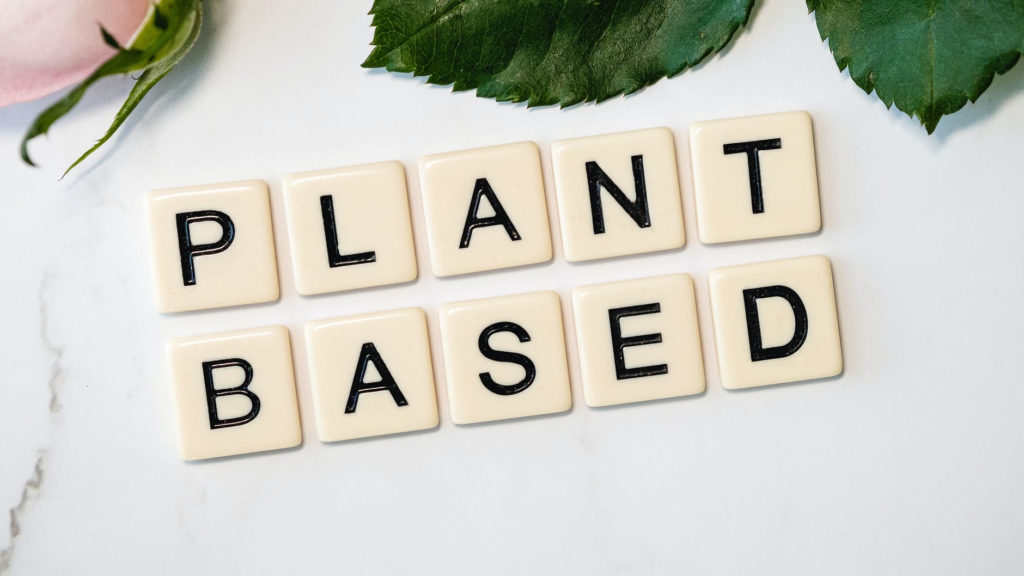
Honestly, it all sounded a bit too good to be true, but since my menu was totally thrown off course, I found the diet intriguing. At this point you may be asking yourself, what the heck is a whole food plant based diet? I know it’s a mouth full, but essentially it’s a vegan diet. Although doesn’t whole foods plant based sound nicer, fancier and less, well, hippie-ish? I think so, too. In all actuality a whole food plant based diet is more specifically a vegan diet that tries to avoid processed foods. The saying goes something like this. “If it’s made from a plant, eat it. If it’s made in a plant, don’t.”
Since I was struggling to eat and my pre-gastrectomy diet was a thing of the past, I figured I would give a whole food plant based diet a try for a week. After a few days of research on what I needed to eat and watching too many hours of YouTube, I found some great recipes to start with.
The first few days were hard. I’ll be honest, the food was delicious, but my body was not equipped to handle that much fiber. I wasn’t sure if it was just the fact I recently had major surgery, but there were a couple of days when the gas was painfully brutal. Despite this, I keep on with the experiment only missing a couple of days to give my bowels a bit of rest.
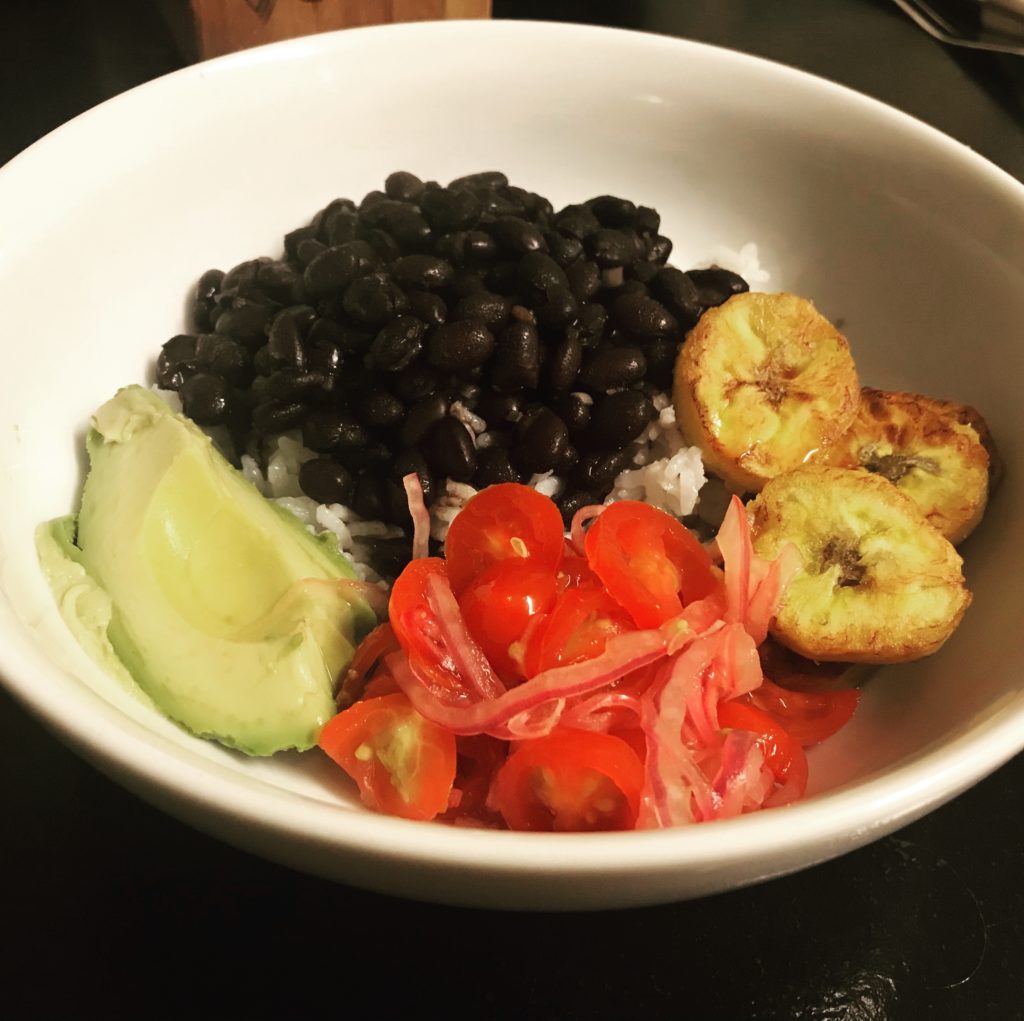
Just like my friend had said, apart from the initial gas pains, I felt great. I had plenty of energy and I felt clean. I didn’t feel heavy or bogged down like I did when I used to eat meat.
Slowly over that next month I continued to eat more and more plant based meals to where one day I realized I was 95% plant based. I felt great and even my daughter was on board for the ride.
There is no way for me to be 100% plant based. Because of my surgery, I have to eat every few hours, so there have been times when I hadn’t prepared enough food and was stuck without food and instead of waiting I would just eat something vegetarian to ensure I got my calories for the day. This doesn’t happen very often. Also, when it comes to cooking I still use fish sauce and oyster sauce on occasion because the vegan versions don’t taste as good to me and my protein powder is vegetarian as it is made from whey. After my surgery I tried about 20 different brands of protein powder. I don’t have a big sweet tooth so most of the protein powders on the market are disgustingly sweet. I tried a few plant based ones, but they too were too sweet and many didn’t mix well, leaving a grainy texture to my drinks.
As a person without a stomach in the weeks after my surgery I really needed a protein powder that was palatable to ensure I got enough calories and protein to survive. The protein powder I finally landed on was Isopure flavorless protein. It’s not completely flavorless, but it’s the closest and has no added sugars. It is however made from whey, which is a milk bi-product. While I’m not as reliant on protein shakes for my survival as I once was, I still drink a lot of them.
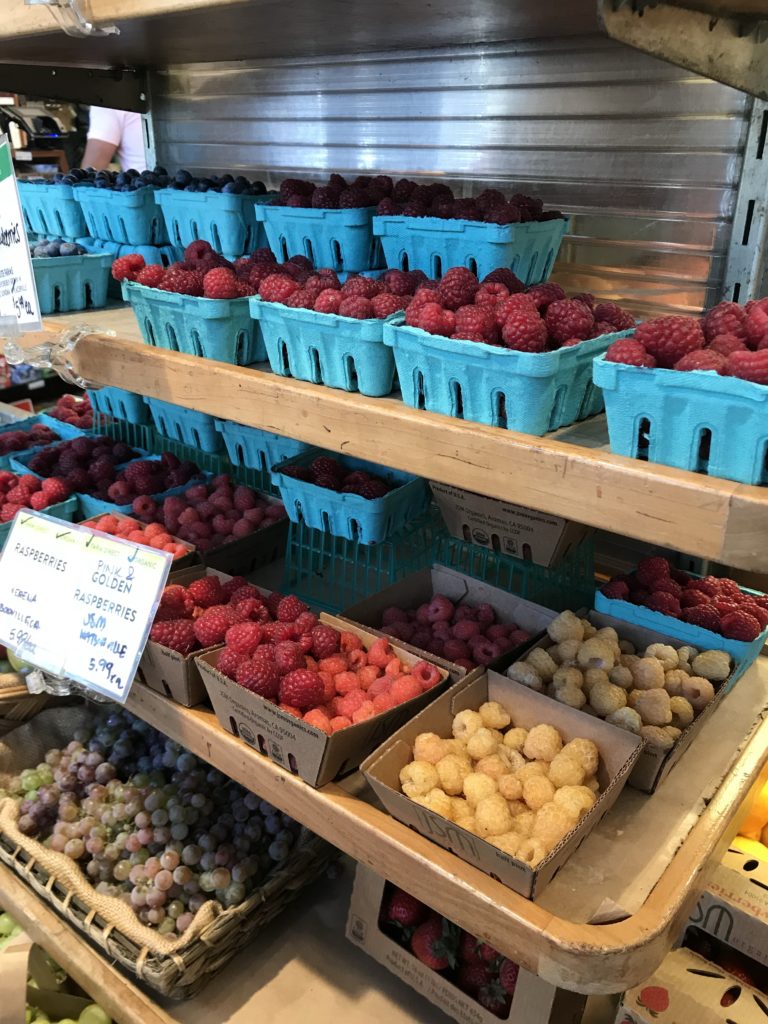
Another cheat is milk chocolate. I’ve tried dark chocolate, but it’s not the same. Milk chocolate makes me happy. Unfortunately, I can’t have very much of it because of the high sugar content in American chocolates, but I’m now up to 6 M&Ms and it makes me very happy to eat them.
Interestingly, I used to mock people who were vegans because they had to take supplements to ensure they got all of their vitamins, with the justification that if it were natural to be a strict vegan you wouldn’t have to take vitamins. Now that I’ve had my stomach removed I question that dogma. Is it natural to live without a stomach? Heck no, but I’m living. So what if I have to take a few vitamins to do it? The greatest irony of that line of thinking is that I now have to take all of the vitamins a vegan has to take plus more, even if I were eating meat. So why not just cut out the meat and dairy and be healthier and happier?
Well that’s exactly what I’ve done for the last 7 months. While I gave up my stomach to save my life and changed my diet to 95% percent vegan to feel healthier, I’m not going to give up all the simple pleasures that go with it. If I want to have some milk chocolate, I’ll have those 6 M&Ms. If I want a bite of cheesecake, I’m going to have that bite. If I want to eat sushi, I’m going to do it. I can’t be a strict vegan, but that’s okay because I am completely happy being an imperfect one.
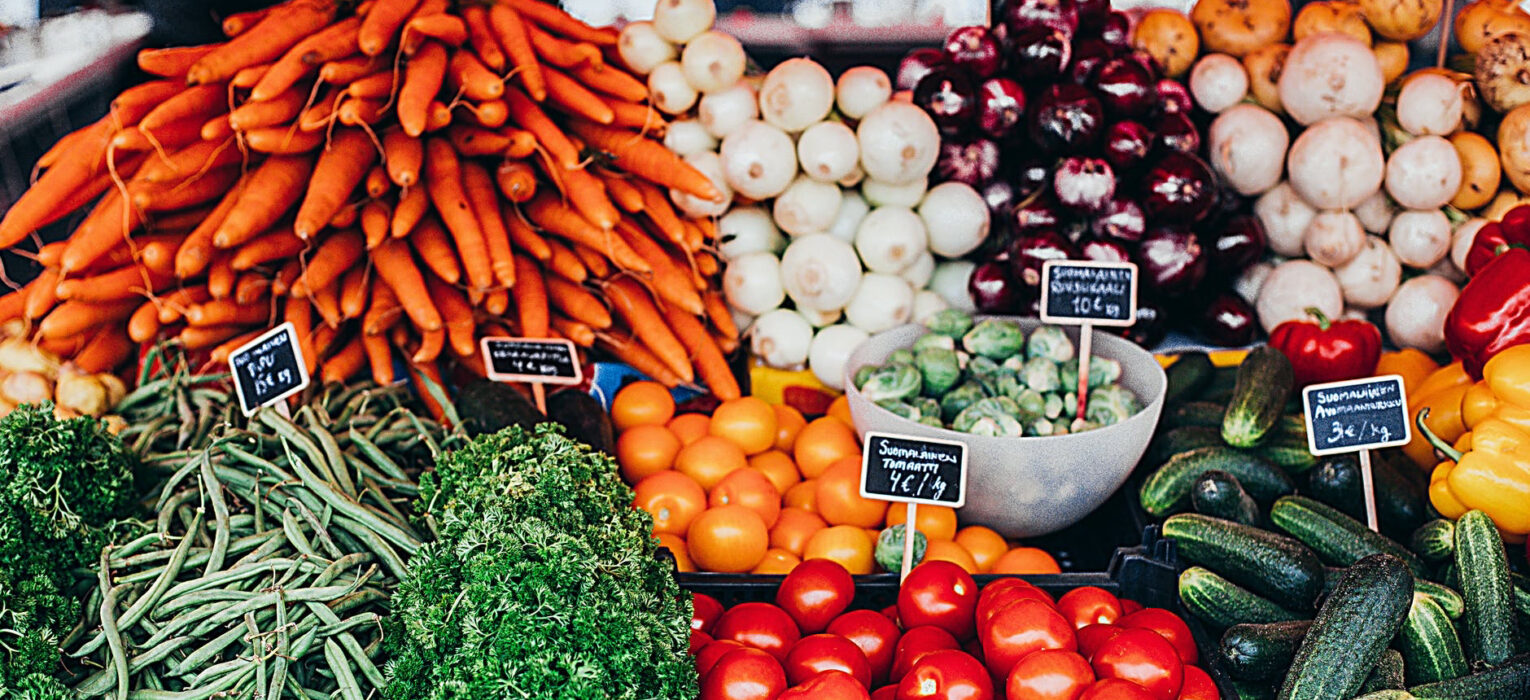
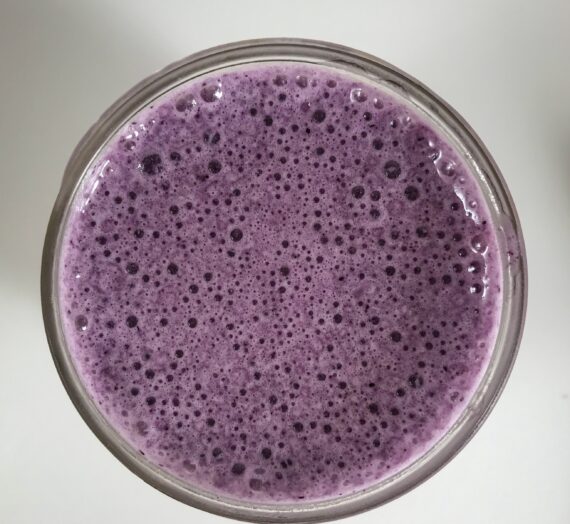
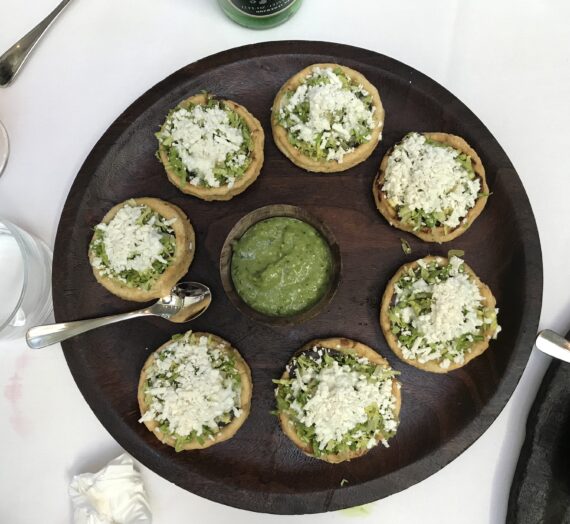
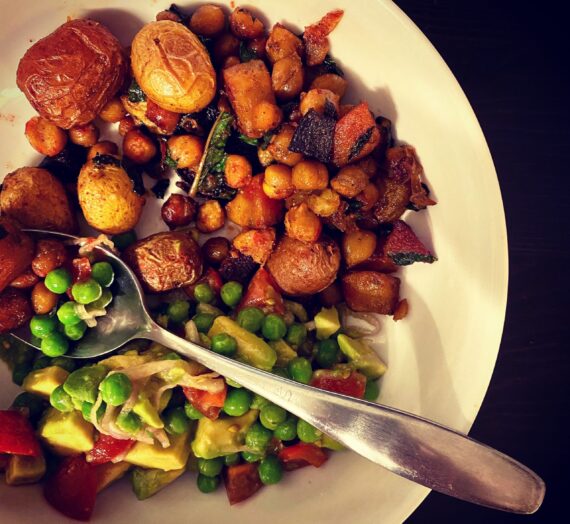
Root Veggie Bake – Can't Stomach Anymore
[…] labor of bees, then avocados may be off limits as well. As I’ve written before, I’m an imperfect vegan, so I’m all about eating […]